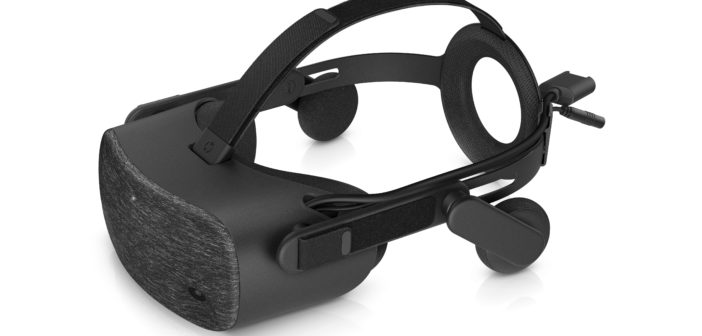Resolution Revolution
HP’s Reverb VR Headset Aims for Stellar Graphics, Exceptional Comfort
Tech giant HP has doubled down on virtual reality, recently making a big splash into the location-based entertainment market and demonstrating the continued interest – and development dollars – going into enhancing the user experience.
Their latest product – the Reverb headset, released in early May – is one the company says is the best of its kind and could grow the technology’s appeal.
“If you look at the market, what really stands out is the resolution of this headset,” said Joanna Popper, global head of virtual reality for location-based entertainment at HP. “We’ve seen demand much higher than anticipated.”
Designed solely by HP engineers, the Reverb has a resolution of 2,160 x 2,160, plus a 114-degree field of view. The low-resolution “screen door effect” that plagues many virtual reality headsets is all but gone in the Reverb, says Popper.

Joanna Popper, HP’s global VR lead for
location-based entertainment
What’s just as great, says HP, is the lightweight comfort from the 1.1-lb. device and inside-out tracking that doesn’t require any additional hardware or calibration.
“We listened really close to what our customers wanted,” Popper said. Three of the things that topped the list were ease of use, highest graphic fidelity and resolution, and comfort.
It’s far and above HP’s Windows Mixed Reality, the company’s first try at a VR headset (the Reverb retails for $599 to WMR’s $299). That headset was made with fields in mind like architecture, engineering, health care and higher education – plus, of course, location-based entertainment.
“In LBE, content creators want to create content that either looks more real or better,” she said. “Operators want something that’s going to feel comfortable for customers while they’re in the experience.”
After all, most VR lasts longer than just a few minutes. Nothing is less satisfying than coming out of a headset with imprints on your face and a headache from the weight. The simple, lightweight product is aimed to make for quicker throughput as well.
That said, VR operators are taking the plunge quickly, Popper reported. HP partnered with Zero Latency to show the new Reverb at the Amusement Expo in March. Zero Latency is one of the companies that made commitments to switch to the new tech (in fact, they’ve set up their 29 free-roam VR venues in 18 countries with it).
“Most of the key players are testing and demonstrating the product,” Popper said. “It’s great because it can run without the need for so much external equipment, driving down costs and simplifying things for operators.”
The HP Reverb is not stuck with games from a particular platform, and the company has no focus on building their own content – “there is already plenty out there,” she added, naming the Windows Mixed Reality store, Steam and others as great content platforms. Game access, in other words, is easy and the possibilities are numerous.
“What we focused on was making their content really pop and look amazing,” Popper explained. “There’s much deeper user immersion and connection to the content.”
She conceded that VR, in a lot of ways, is still in its infancy and that the fun center market is a huge part of bringing it to the masses.
“FECs have always been on the forefront of bringing new and exciting technologies to drive customer experience,” she said. “I think that they’re looking at how they’re going to drive additional revenue.”
Additional traffic is a given, Popper believes, when an operator adds VR to their FEC’s offerings. She cited data from two different studies at malls that surprisingly showed 40 to 60 percent of people who went to a VR pop-up experience had never been to that mall before. They draw people to places they might not otherwise go. While those percentages might be smaller at a strictly entertainment facility, a virtual reality experience will certainly draw interest from gamers and curious parties. (Remember, only something like 10 percent of the U.S. population has even tried VR.)
But a dedicated fan base means a “strong potential for driving traffic,” and perhaps more importantly – repeat traffic.
“When people are going to FECs, they’re there to have fun with their family and friends,” Popper noted. “Being seen as that really fun, exciting place that showcases something new for people, and brings them along that journey, is a positive attribute of FECs, and people are more likely to engage.”
Different interests among different customers, after all, is the name of the game in the amusement industry, and why most everybody in the business has varied attractions.
“In each experience, you’re entering a different world,” Popper said.
Learn more about the HP Reverb and other products at www.hp.com.




